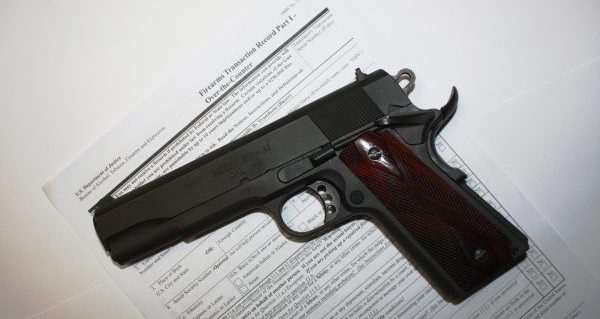
Specific language in Nevada’s new gun control law that requires so-called “universal background checks” on all firearm transfers is preventing its own implementation, according to an opinion from the state Attorney General’s office and the FBI’s National Instant Criminal Background Checks System (NICS).
Gun control proponents contended in comments to Nevada newspapers that a simple fix is possible. However, that may be wishful thinking.
The new law specifically requires licensed firearms dealers to contact the NICS system. However, Nevada has a “Point of Contact” program that has background checks conducted by the Department of Public Safety’s Central Repository.
The background check measure, known as Ballot Question 1, passed Nov. 8 by a slim 50.45% to 49.55% margin, a 9,899 vote difference in a contest that drew more than a million votes.
Jennifer Crowe, spokesperson for the local Moms Demand Action group, which is part of the Everytown for Gun Safety gun control lobbying organization, insisted to the Reno Gazette-Journal that, “The bottom line is that Nevada officials have a responsibility to work with the FBI to implement the system approved by a majority of voters.”
But in a Dec. 14 letter to the Nevada Department of Public Safety (DPS), Kimberly J. Del Greco, section chief for the FBI’s NICS Section, said, “the recent passage of the Nevada legislation regarding background checks for private sales cannot dictate how federal resources are applied.”
An opinion from the state Attorney General’s office to DPS Director James M. Wright was also blunt.
“Because the Act specifically directs the dealer to run checks directly through the FBI’s NICS system, the Nevada Department of Public Safety has no authority to perform the private-party background checks required by the Act,” wrote Gregory L. Zunino, bureau chief for Attorney General Adam Paul Laxalt.
The AG’s opinion details the problem:
To conduct the required check in the manner specifically required by the Act, ‘the licensed dealer must contact the National Instant Criminal Background Check System, … and not the Central Repository, to determine whether the buyer or transferee is eligible to purchase and possess firearms under state and federal law.’ The Act is very specific that the only background check it authorizes for a private sale or transfer is directly through the FBI. Indeed, lest there be any doubt, the Act specifically directs that licensed dealers not contact the Department’s Central Repository to conduct such checks. Because the plain text of Section 5(3)(a) expressly forbids licensed dealers from contacting the Central Repository to conduct the private party background checks required by the Act, it necessarily forbids the Department from facilitating non-compliance with the Act by performing such checks through the Central Repository. And because the Department lacks authority to perform such background checks, it therefore cannot charge fees for doing them.”
The Background Check Act was patterned after a similar public initiative passed two years ago in Washington State, in a similar fashion. It drew support from wealthy elitists, but was opposed by county sheriffs, a law enforcement trainer’s organization, sportsmen and gun owners.
In Nevada, prosecutors and sheriffs opposed the measure.
Critics of so-called “universal background checks” that ultimately require paperwork say the real purpose of such measures is to create a de facto gun registration system.
Related:
Year Winds Down, Deceptive Anti-Gun Rhetoric Heats Up
California Sheriff Will Ease CCW Permit Process in His County